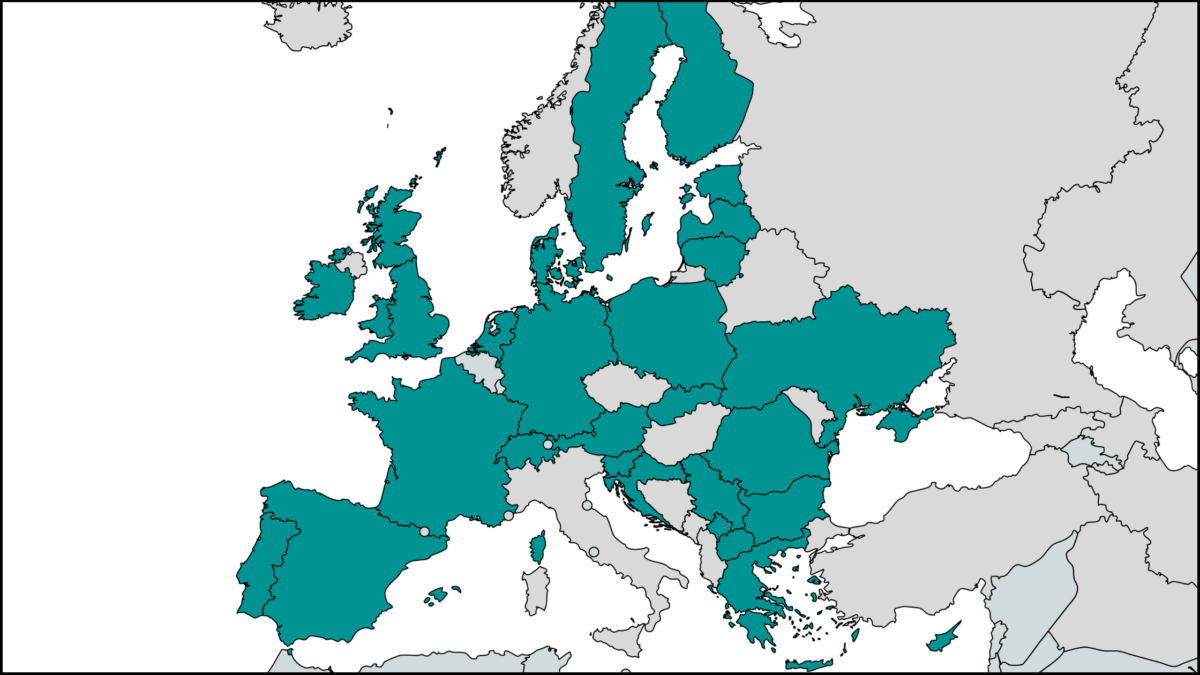EDGE Paves Pathway for Zero Carbon in Europe
Europe is leading the climate action charge, with a commitment to become the first carbon neutral continent by 2050. To reach this ambitious net zero target, the continent will have to reduce the impact of the buildings. According to data from the European Commission, the built environment accounts for approximately 40% of energy consumption and 36% of carbon dioxide emissions across the European Union.
Initiatives such as the Renovation Wave and national policies focusing on retrofit will help bring attention to the built environment, but companies also have a big role to play. By taking ambitious climate action, companies can help drive the net zero agenda forward.
Over the last few months, the adoption of EDGE across Europe has shown that it has a strategic role to play in implementing corporate sustainability strategies. Companies can now use EDGE to quantifiably reduce the carbon impact of their building stock and transition it to operational net zero carbon in a transparent and verified way. EDGE has a vital role to play in making net zero a reality.
How does EDGE work in Europe?
The foundations of EDGE remain the same, regardless of location. It was designed to be global in nature and adapts to local markets. The functionality of the EDGE App remains constant but what users may notice is that the 20% minimum improvement becomes much harder in European countries. This is because the underlying baselines for Europe are much higher than other countries, as the baselines are partially built from the local building regulations. In Europe, building regulations are very stringent, which makes a 20 percent or 40 percent improvement over baselines in countries such as Germany and Denmark challenging and significant.

“EDGE aims to move the construction market to Zero Carbon as part of the Paris agreement goals. The baselines for all European countries were recently updated in a project developed in partnership with EBRD and reflect the latest regulatory changes in each country across Europe. All European baselines have been calculated based on policy data collected in 2019. This means that when companies undergo EDGE certification for European projects, the percentage improvement is calculated against this local baseline. This really underlines the achievement of all the companies that have been able to surpass the already very challenging baseline established by the local codes and improve their resource efficiency. We hope to see more companies using the tool to identify efficiency improvements and to use EDGE to determine how to reach zero carbon certification.” –
Ommid Saberi, Green Building Specialist at IFC and the technical lead of EDGE
Why do European companies choose EDGE?
The primary reason European companies choose EDGE is because it is entirely quantitative, which means companies can clearly measure the impact of their emissions reductions activities, and report it to their internal and external stakeholders. They can also use the percentage improvements as benchmarks as they work towards long-term improvements.
The use of the EDGE tiers as improvement benchmarks is another reason why companies in Europe are adopting EDGE. EDGE Zero Carbon certification takes Architecture 2030’s definition of net zero and looks at operational energy. EDGE Zero Carbon requires a minimum of 20 percent savings in water and embodied energy, with 40 percent energy savings on-site, and 100 percent energy savings achieved either through renewables or carbon offsets compared to a country specific baseline. Companies can work on increasing the impact of their buildings and move towards zero carbon.
EDGE also links neatly to green financing initiatives, that are starting to grow in importance and make a major difference to the greening of European building stock. EDGE is the only green building standard that has been developed by the investment community – it provides the high degree of rigour that is needed by investors and the finance sector.
What is EDGE’s profile in Europe?
EDGE is gaining traction across the European continent, particularly as companies begin to apply it at scale. In Western Europe, Lidl Danmark recently certified its entire portfolio of 119 existing retail stores with EDGE. Lidl wanted to set targets for sustainability performance and future improvement according to international best practice. EDGE’s clear and simple focus on water, operational energy and embodied energy made it the ideal choice for a retailer wishing to manage and improve existing outlets and set parameters for new development. This achievement makes them the leading owner of certified green building stock in Denmark.
In the last few months, we also saw the certification of Citadines Arnulfpark in Munich, who received EDGE Advanced certification. The hotel was designed to be highly resource efficient, with features such as high thermal performance glass, LED light fittings, water-efficient water fixtures and lighting controls in the corridors. The building was able to improve its resource efficiency against the local German baseline by 45%.
From offices to shops to residential developments, uptake in Eastern Europe has remained high over the last couple of years. A few projects worth noting are Warehouses de Pauw (WDP), a warehouse developer who certified its portfolio of 45 warehouses across Romania using EDGE. WDP adopted EDGE certification to quantify the performance of its portfolio in terms of energy, water and materials, and establish a plan for reducing the carbon footprint of the whole portfolio of new and existing developments. Improving tenant engagement, and supporting them in developing their own ESG strategies was also a key reason for adopting EDGE in Romania.
Over in Bulgaria, there is a portfolio of 50 Kaufland buildings certified with EDGE, as well as the ProCredit Bank Bulgaria head office in Sofia became the first building in Europe to achieve EDGE Zero Carbon in 2020. To achieve the EDGE Zero Carbon certification, ProCredit Bank Bulgaria EAD focused on making the building as efficient as possible, before installing solar PV on the roof and offsetting any additional electricity exclusively via contracts with suppliers that only use renewable sources. The carbon emissions from the gas fired heating was offset by a local Gold Standard Wastewater Treatment project.
In the UK, Etopia Homes have announced that they will become the first residential developer to achieve zero carbon status, and are committed to using EDGE to achieve this. Etopia’s first development aiming to achieve EDGE certification comprises a 30-home development in Cambridgeshire, in the east of England. Etopia are an innovative, modular housing provider who rate sustainability highly and are seeking to change attitudes to the provision of homes in the UK and beyond.
Currently there are projects undergoing EDGE certification in 26 countries across Europe, and there are already almost 4 million square metres of floor area to date in the region certified by Sintali and SGS.
As more attention is placed on the built environment, companies will need solutions to implement green buildings at scale and to provide third party verified proof that they are meeting their net zero commitments. There is no doubt EDGE has a big role to play in making the vision of a carbon neutral Europe a reality.





